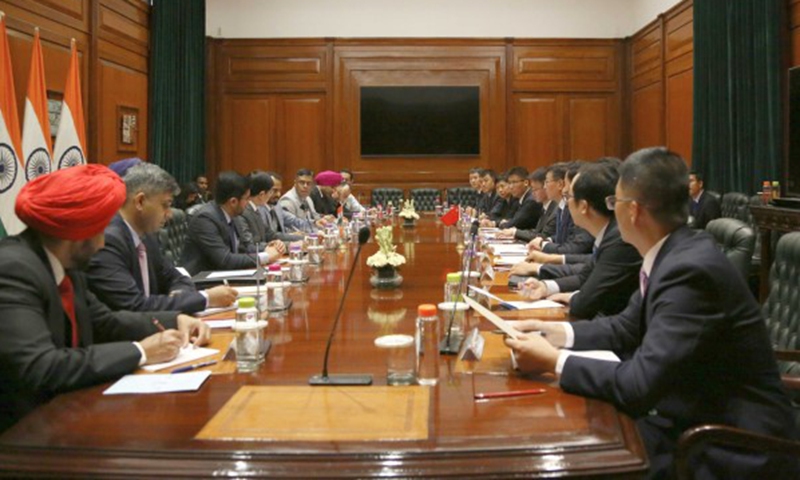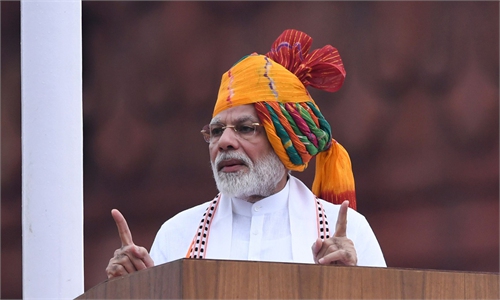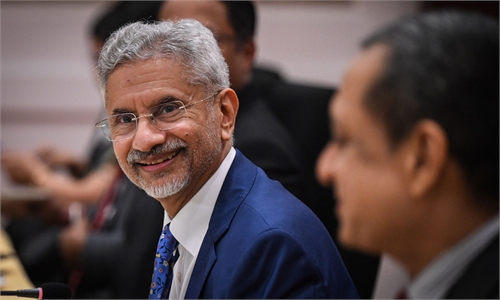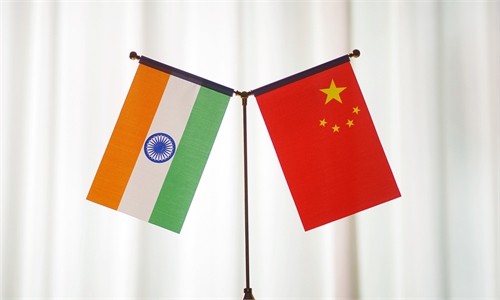Increasing China-India interactions conducive to building momentum for improving ties: expert

China and India hold the 30th meeting of the Working Mechanism for Consultation and Coordination on China-India Border Affairs (WMCC) in New Delhi on July 31, 2024. Photo: Chinese Foreign Ministry
Hong Liang, Director-General of the Department of Boundary and Ocean Affairs of the Chinese Foreign Ministry and Gourangalal Das, Joint Secretary of the East Asia Division of Ministry of External Affairs of India co-chaired the 30th Meeting of Working Mechanism for Consultation and Coordination (WMCC) on China-India Border Affairs in New Delhi on Wednesday.The recent interactions between China and India are seen as crucial for building positive momentum toward addressing border issues and stabilizing bilateral relations, analysts said, also urging Indian side to intensify efforts in collaboration with China to further improve bilateral relations.
During the meeting on Wednesday, the two sides agreed to actively implement the important common understandings reached at the recent bilateral meeting between the two foreign ministers, focus on specific issues related to the China-India border, accommodate each other's legitimate concerns and reach a mutually acceptable solution at an early date, according to a release of Chinese foreign ministry.
The two sides also agreed to maintain communication through diplomatic and military channels, strengthen negotiation mechanism building, speed up the negotiation process, and turn over a new leaf in the border situation at an early date so as to promote the sound and steady development of China-India relations. The two sides agreed to strictly abide by the agreements already reached and continue to maintain peace and tranquility in the border areas.
The meeting came against the backdrop of a series of interactions between China and India. On July 25, Chinese Foreign Minister Wang Yi met with Indian External Affairs Minister Subrahmanyam Jaishankar in Vientiane, Laos on the sidelines of a series of ASEAN meetings.
Also on July 4, Wang met with Jaishankar in Astana, Kazakhstan, on the sidelines of a two-day meeting of the Council of Heads of State of the Shanghai Cooperation Organization, during which the two sides agreed to commit to stabilizing the border areas and hold a new round of consultations addressing border issues.
There are some positive signals coming from China-India relations, however, without breakthroughs on the core issue of border affairs, it will not be easy to see more improvement in bilateral relations, Long Xingchun, a professor from the School of International Relations at Sichuan International Studies University, told the Global Times on Thursday.
Long said that while China maintains that border issues do not encompass the entirety of bilateral relations, India insists that resolving these issues are crucial for returning bilateral relations toward a normal trajectory.
Based on current momentum, India may consider making tactical adjustments that align with its interests. For instance, there is increasing discussion in India about relaxing visa restrictions for needed Chinese engineers and lifting restrictions on Chinese investments, Long said.
Some analysts hold a cautiously optimistic view on future bilateral relations, noting that with no major changes observed in India's China policies during Prime Minister Narendra Modi's third term, shifts in political mindset may be challenging for Indian politicians.
However, exchanges at various levels combined with people-to-people interactions can serve as a bridge for mutual understanding between the two countries, they said, noting that China has consistently maintained an open and welcoming stance towards Indians, and New Delhi should reciprocate by taking similar steps to foster more positive factors for bilateral relations.




